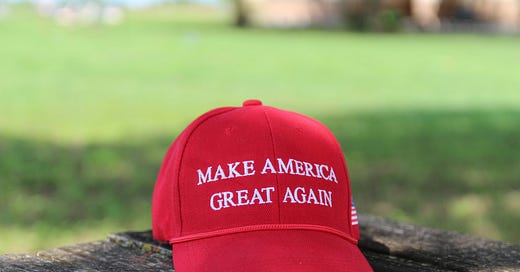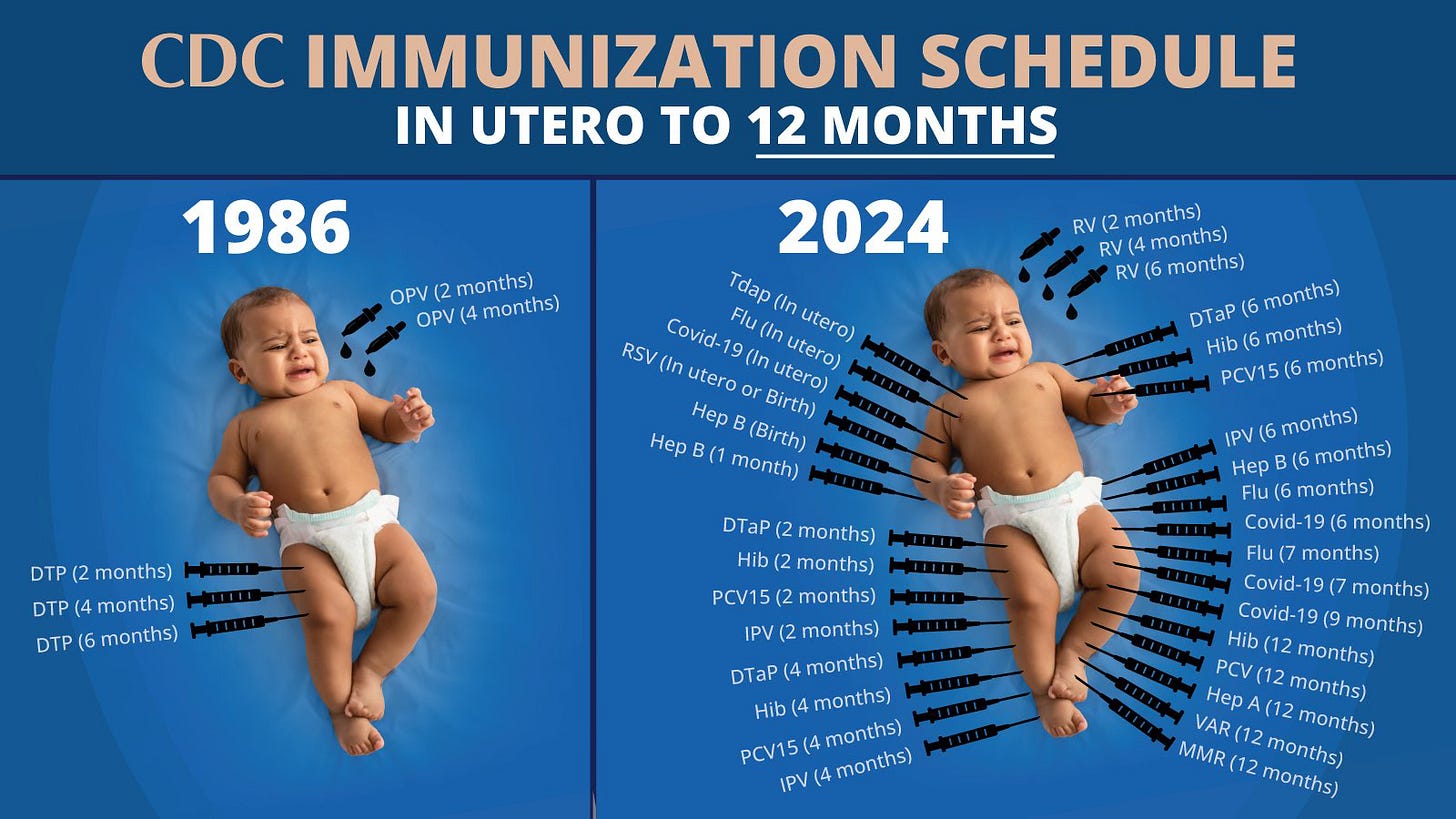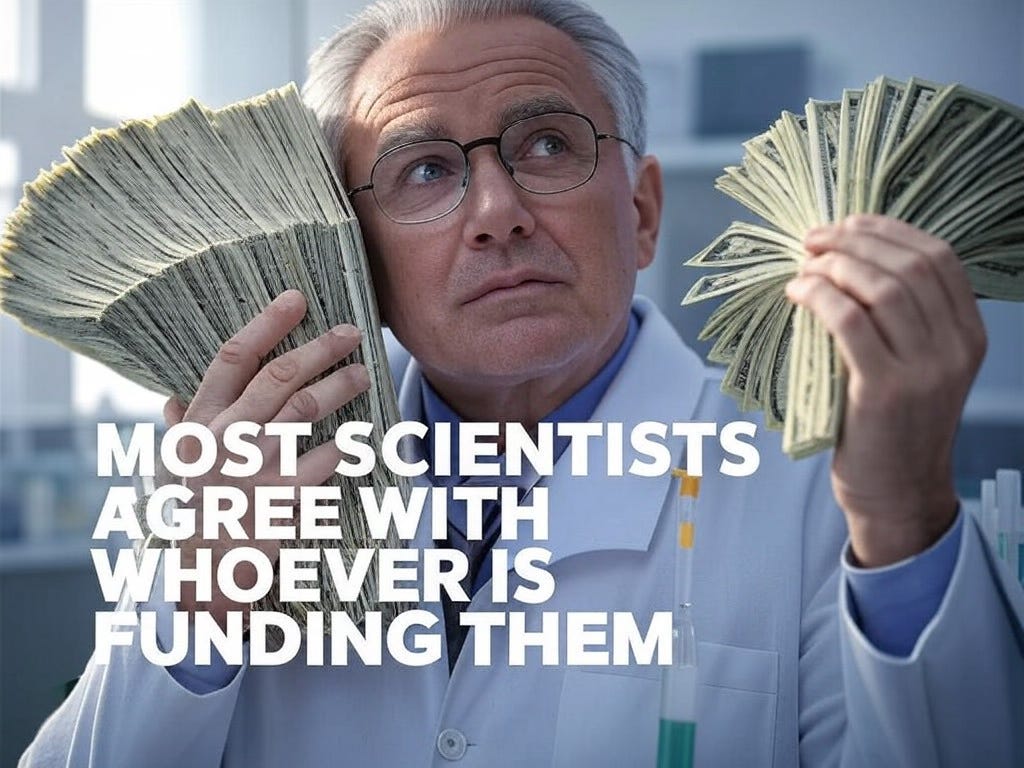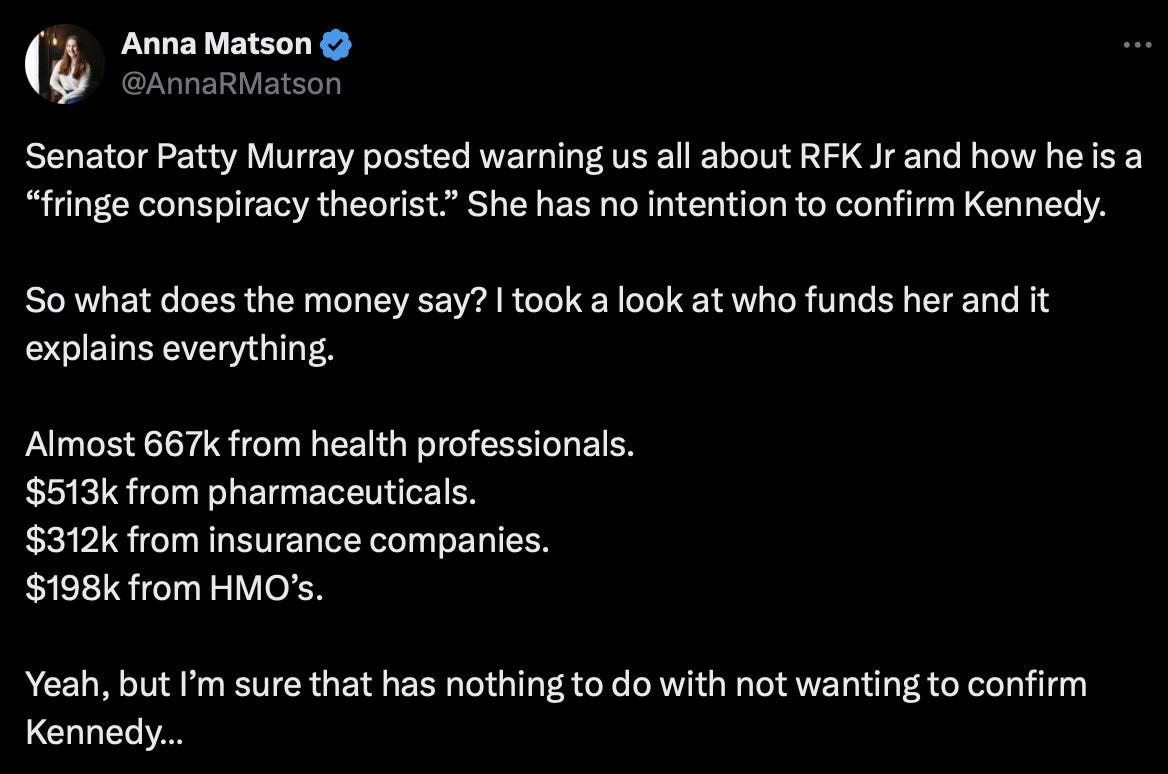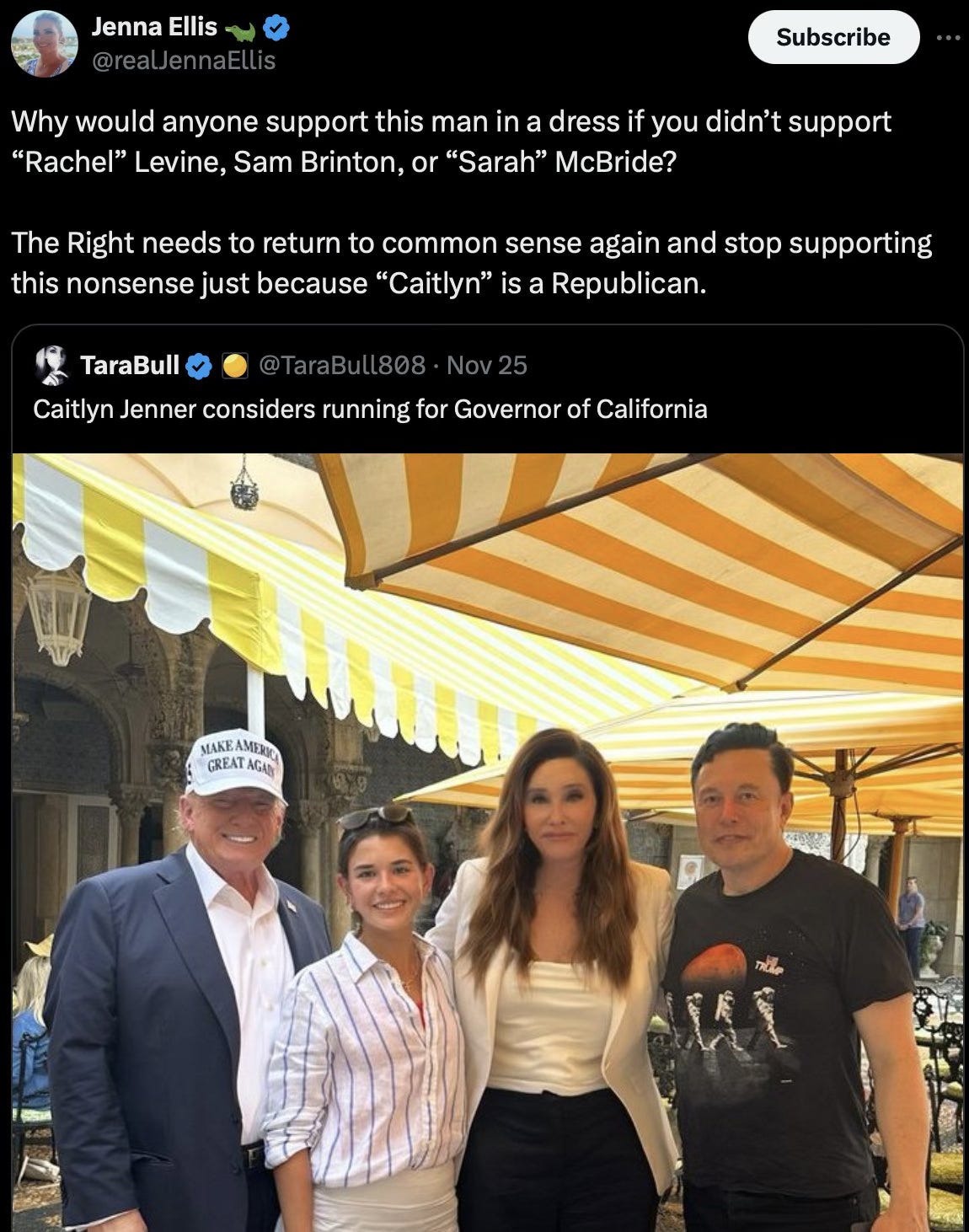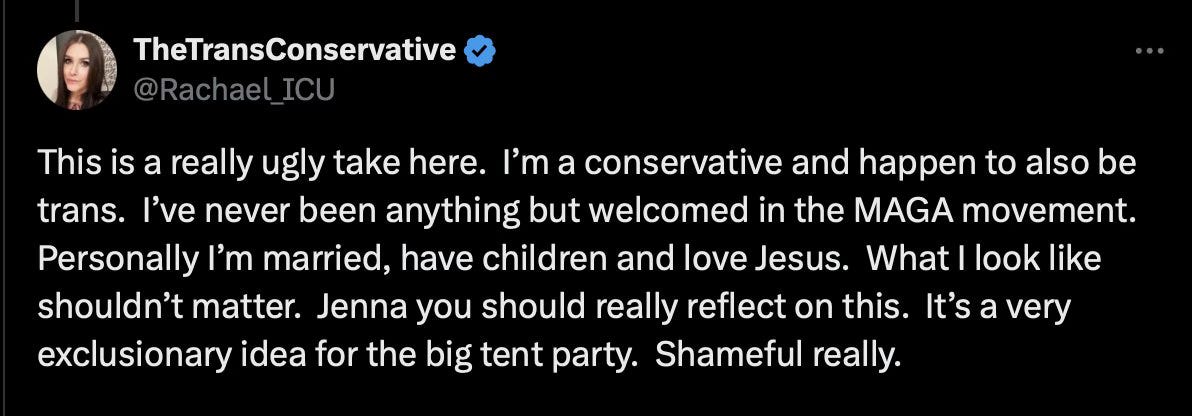I Once Saw MAGA as a Bunch of Bigots Bent on Taking Away Rights—Boy, Was I Wrong
First Published: December 12, 2024
Back when I was ensconced in my Trump hating bubble, I completely accepted the portrayal of the MAGA right as a group of uninformed bigots unwittingly supporting an authoritarian regime set on gradually eroding our rights. It wasn't exactly a lightbulb moment where I realized how off I was. Instead, It was a series of discoveries and personal encounters that forced me to reassess things. The experience opened my eyes to how effective gaslighting and propaganda can be in twisting our perceptions and emotions. Now, my defenses are up, and they're staying that way.
If you're currently nestled in the same echo chamber I used to inhabit, brace for impact. Realizing that your tribe might not be the kind, open-minded, principled, and informed crowd you thought they were can be disorienting. And it's a tough pill to swallow, when you realize that you've been accusing others of the very narrow-mindedness you yourself exhibit. Trust me, I know.
When I began exploring materials and conversations that even hinted at being favorable towards MAGA, my initial response was to either disengage or scrutinize it with a biased eye. If you believe, as I once did, that MAGA is a movement that stands for Christian nationalism, white supremacy, and authoritarianism intent on dismantling our government to retain power, you'll need to open up both your heart and your mind as I introduce you to evidence indicating quite the opposite.
First, it's crucial to understand that although Donald Trump ran as a Republican, he exhibits quite a few liberal tendencies, and there was a sentiment among some of his early supporters that he would be better suited to run as an Independent or form his own political party. Trump's allure was significantly tied to his outsider status and his pledge to shake up the political establishment. He drew support not only from Republicans but also from Democrats and Independents who were looking for a candidate committed to representing the interests of The People and dismantling the entrenched influence of special interests in government. When the Democrat establishment sidelined Bernie Sanders in favor of Hillary Clinton, a segment of Sanders' supporters switched their allegiance to Donald Trump. I remember being utterly confused by this fact; I thought Bernie and Trump were polar opposites. Now I get it.
Bernie Sanders has recently made statements indicating his willingness to collaborate with Donald Trump on certain shared policy initiatives, and he has also come to the defense of Trump's choice for Director of National Intelligence, Tulsi Gabbard, stating: "Tulsi Gabbard has put her life on the line to defend this country. People can disagree on issues, but it is outrageous for anyone to suggest that Tulsi is a foreign asset."
For those unfamiliar with the controversy surrounding Tulsi Gabbard: she is a military officer who has experienced firsthand the consequences of war. Gabbard has openly criticized the military-industrial complex and politicians aligned with it, advocating that war should be considered only as a last resort. These views led to her distancing from the Democratic Party and accusations of being a foreign asset. Learn more about Tulsi and her positions at the link below.
Dr. Phil Interview with Tulsi Gabbard
In the end, the pragmatic choice for Trump was to campaign as a Republican, leveraging the party's existing infrastructure to secure victory, with the intention of transforming from within. One of his campaign slogans was "Drain the Swamp," yet Trump found it challenging to truly live up to this promise during his first term. Trump, who's not exactly known for owning up to mistakes, has come as close as he ever does to admitting fault by suggesting that perhaps he was initially unfamiliar with the Washington system and its players, which led to him to rely on recommendations from GOP insiders for filling his Cabinet and other critical roles. Consequently, he later fired many who he felt did not align with his swamp-draining agenda.
Democrats capitalized on this fact in their 2024 campaign rhetoric to illustrate that Trump was so dangerous to Democracy that even Republicans who had once worked for him withdrew their support. However, by not fully grasping the underlying agenda of the MAGA movement and its supporters, the Democrats further alienated Independents and disenchanted Democrats by aligning with the very Republicans they once villainized. Their connections with the Cheneys and other figures known for their deep ties to the Military Industrial Complex only reinforced the idea that the Democrats had become the party of war and of corporate elites.
Remember when Democrats called Dick Cheney a war criminal for his role in the Iraq War fiasco? Fast forward to 2024, and suddenly they're thrilled to have his endorsement.
I've come to understand that these are precisely the kind of war-mongering, establishment politicians that MAGA aims to remove. They'll gladly trade a Liz Cheney for a Tulsi Gabbard. Their goal is to transform the Republican Party into a party devoid of allegiance to the establishment, where everyday people aren't just pawns in their quest for power.
I've been on the sidelines watching as more and more Democrats are realizing that MAGA embodies the very principles they've been advocating for within their own ranks.
Cenk Uygur, host of The Young Turks Podcast and a self-proclaimed progressive populist, appeared on the Lex Fridman podcast in September 2024, discussing the potential change that could come if populist movements from both the right and left were to unite. At that time, he didn't associate MAGA with being an anti-establishment movement and shared that he planned to vote for Kamala Harris. However, by late November 2024, things took an interesting turn:
So how did I, Cenk, and so many other liberal Democrats come to entertain the idea that MAGA isn't a far-right, Christian Nationalist, authoritarian wing of the GOP? How did we start to buy into this narrative that Trump and his MAGA movement were genuinely trying to wrest power from the government, big business, and the bureaucratic elite, with the intention of handing it back to the everyday American?
Lets dig in.
Foreign Policy
Here's a clear instance where President Trump, in practice, resisted the pressures of the military-industrial complex and demonstrated restraint in his approach to foreign policy.
In response to the imminent threat of attacks against American diplomats and military personnel, On January 3, 2020, President Donald Trump authorized a drone strike that killed Iran military commander, Qassem Soleimani. Soleimani was viewed as one of the most powerful figures in Iran, with significant influence over its military operations abroad.
Iran retaliated by launching ballistic missiles at two Iraqi military bases housing U.S. troops. By warning the Iraqi government beforehand, Iran facilitated the evacuation of personnel, suggesting the attack was meant to save face domestically without escalating into a full-blown conflict with the U.S.
Despite advice from military advisors to retaliate with force,Trump chose to refrain from military action, underscoring his preference for avoiding prolonged military engagements in favor of de-escalation and peace. Far from the media's characterization of Trump as a reckless leader with his finger on the nuclear button, this event is part of a broader pattern of restraint and preference for economic sanctions and diplomacy over military interventions that could escalate into war.
Trump's aim seems to be a global image where US leaders are seen as strong, respected, and sometimes a bit feared. This aligns with the MAGA mission of peace through strength. As I've gotten to know more MAGA folks, some of them kind of remind me of the anti-war hippies back in the '60s and '70s.
So, who's pulling the strings when it comes to military conflicts globally? It all starts with the intelligence agencies. These agencies maintain very close relationships with the military-industrial complex and a hefty chunk of their budget goes straight into the pockets of defense contractors for technology, surveillance systems, and other military hardware. The business interests of these contractors can influence foreign policy, and they have a knack for nudging foreign policy in directions that keep their factories humming. Case in point: Remember when the CIA claimed Saddam Hussein had weapons of mass destruction? This was how the Bush Administration justified the need for military action against Iraq. It later became clear that this intelligence was wrong.
But here's where it gets even more interesting - the revolving door between these intelligence agencies and the arms industry. This is where individuals move back and forth between high-level positions in government intelligence agencies and executive or lobbying roles in the arms industry. It's all very cozy, very convenient, and very ethically questionable. Which leads us right into another core MAGA principle: END CORPORATE CAPTURE.
Now, let's talk about Tulsi Gabbard, whom Donald Trump has nominated for Director of National Intelligence. Here's a woman who's not shy about calling out the military-industrial complex for their war profiteering. Tulsi has been a consistent critic of regime change wars, notably the Iraq War, favoring diplomacy as an alternative to military intervention. She's made it abundantly clear that military force should be reserved for direct threats to security, not for altering foreign governance. Tulsi has also been vocal about her views on the Ukraine war suggesting that the conflict could have been avoided had NATO and the U.S. acknowledged Russia's security concerns regarding Ukraine's potential NATO membership. (For a comparable scenario, consider how the U.S. might react if Canada or Mexico were to align militarily with Russia or China, positioning foreign troops and missiles close to our borders.) These stances have led to a significant distancing by establishment politicians, with some even going as far as to label her as a foreign asset.
On July 23, 2024, the day after Gabbard criticized Vice President Kamala Harris on Fox News for her foreign policy stances, particularly around military intervention and national security issues, Gabbard was added to a secret watch list, the Quiet Skies list. Gabbard describes she and her husband being subjected to extensive TSA screenings, including the use of explosive detection canines, swabbing for explosive residue, and being assigned multiple air marshals to watch them during flights. Tulsi is a Lieutenant Colonel in the Army Reserve and has been deployed to conflict zones which means she has already undergone extensive background checks and has Top Secret clearance. Accusations that she is a foreign asset and placing her on a secret watch list with no explanation is beyond ridiculous. But it's an example of the lengths our government will go to protect their interests and the interests of the military industrial complex.
I usually aim to stick to the facts for others to interpret, but I feel compelled to give my opinion here: Confirming Tulsi Gabbard as Director of National Intelligence would likely lead to a purge of corruption, conflicts, and misuse of power, redirecting the agencies to their core mission of protecting Americans. The powers that be feel so endangered by this idea that they'll go to any lengths to discredit her and prevent her confirmation.
Next, we have the Department of State (DoS) managed by the Secretary of State. Donald Trump has nominated Senator Marco Rubio for this role. While the Director of National Intelligence oversees intelligence, the Secretary of State uses this intelligence to inform foreign policy decisions that could lead to or support military actions. The Secretary of State is the chief foreign affairs adviser to the President, which includes how military operations align with diplomatic efforts. The MAGA base appears less enthusiastic about Rubio's nomination, whereas there seems to be a consensus of support from The Establishment—both Democrats and Republicans. Rubio has a history of interventionist tendencies, but his positions have seen some evolution. Rubio has been a proponent of arming Ukraine, yet his recent vote against the significant financial aid package for Ukraine and several other countries could imply a move towards advocating for peace talks or a reassessment of U.S. involvement in these conflicts.
The third key player involved in foreign policy and military operations globally is the Department of Defense (DoD). Trump has nominated Pete Hegseth to lead this department. Hegseth has been accused (though all accusations are anonymous) of sexual misconduct, alcoholism, and financial mismanagement. Hegseth has publicly denied all allegations. Rather than recounting the details myself, listen to Pete Hegseth's own words on the subject during his interview with Megyn Kelly, which you can view here. You can explore Hegseth's personal background to form your own opinion on whether any of it should disqualify him from the role of Secretary of Defense.
Let's turn to Hegseth's qualifications and priorities for the DoD and how well they align with the MAGA agenda. MAGA prioritizes dismantling corporate control, merit over identity, peace through strength, and backing our military personnel and veterans. Let's see how Hegseth holds up to these ideals.
Hegseth is frequently introduced in headlines as just a Fox News host, yet his resume extends far beyond media, encompassing significant military service, academic credentials, and executive roles in veterans' advocacy.
Hegseth has a Bachelor's degree in political science from Princeton and a Masters degree in Public Policy from Harvard. He has served in the U.S. Army National Guard with deployments to Guantanamo Bay, Iraq, and Afghanistan, reaching the rank of major. He was a platoon leader in Iraq, earning two Bronze Stars and a Combat Infantryman Badge. Hegseth also served as a counterinsurgency instructor in Afghanistan. His military honors include multiple Army Commendation Medals.
Following his time in the military, Hegseth took on leadership roles within non-profit organizations focused on advocating for veterans. In his conversation on the Shawn Ryan Show, Hegseth says the Department of Veterans Affairs (VA) should be in the business of serving vets rather than serving its own bureaucracy. He argues that just as there is a Military Industrial Complex, there's also what could be called a Veterans Industrial Complex in the way these organizations function.
Hegseth critiques the VA's inefficiencies, providing an example where veterans are forced to travel long distances, sometimes hundreds of miles, just for a medical appointment after months of waiting. He also delves into his vision for how the government can more effectively support veterans and expresses concerns about the future direction of the Department of Defense (DoD), suggesting that without significant changes, its path is concerning. For Hegseth's insights into potential DoD reforms that could be implemented with new leadership, the full Shawn Ryan interview is available below:
Pete Hegseth on The Shawn Ryan Show
After examining Pete Hegseth's background firsthand, setting aside opinions on his personal life or politics (he is undeniably a Christian conservative), his views on the defense department should resonate with both non-establishment liberals and conservatives. Hegseth advocates for a strong, efficient military that's not bogged down by identity politics, special interests, or career bureaucrats who might not truly understand the realities of war. This aligns perfectly with the principles Donald Trump and the MAGA movement advocate for: a focus on practical service and efficiency over political agendas.
Trump often suggests a preference for leaders with military experience and has criticized military leaders for what he perceives as their eagerness to engage in conflicts. During a news conference in 2020, he stated, "I'm not saying the military is in love with me—the soldiers are. The top people in the Pentagon probably aren't, because they want to do nothing but fight wars so that all of those wonderful companies that make the bombs and make the planes and make everything else stay happy."
Trump's statement here has an old school Democrat ring to it, doesn't it?
Health Policy
It's pretty clear. Our health system is broken. We keep throwing more money at government health agencies, but instead of getting healthier, people are getting sicker. We first began seeing significant increases in chronic diseases around the 1980s; right around the time the government told us to cut out fats in favor of processed carbohydrates and right around the time the National Childhood Vaccine Injury Act was passed giving vaccine manufacturers protection from liability for their products. This legislative change resulted in a huge wave of new vaccines added to the childhood vaccination schedule.
Today, 42.5% of U.S. adults aged 20 and over are obese, including 9.0% severely obese, and another 31.1% are overweight. An increasing proportion of people in America are dealing with multiple chronic conditions; 42% have 2 or more, and 12% have at least 5. A whopping 90% of our $4.1 trillion healthcare budget each year goes towards dealing with chronic diseases and mental health issues.
And it's not just adults; increasingly, children are being diagnosed with chronic health conditions. Food allergies were rare in the 1980s, but by 2021, just over one-quarter of children had at least one allergic condition. Data indicate a marked increase in hospitalizations due to food allergy in the past several decades, a trend absent in non-industrialized nations.
Today, one in three adolescents have pre-diabetes,Asthma in kids hit epidemic levels back in the '90s and it's only gotten worse, cancer rates in children continue to increase, and autoimmunity (when the immune system attacks the body instead of protecting it against disease) nearly tripled in adolescents since 1988.
The assault on our health is part of a complex and corrupt network that was set in motion long ago. The details of how this all unfolded are extensive and complex, but it mostly has to do with corporate capture of science and our government agencies. Here's the gist of it.
1. Ancel Keys Seven Countries Study
In the late '50s, Ancel Keys kicked off a study to prove that fat, especially saturated fat, was the villain behind heart disease. His Seven Countries Study showed a link between fat and heart disease in seven countries, but he left out places like France and Switzerland, where fat intake was high and heart disease was low. Meanwhile, John Yudkin in the UK was looking into how sugar might be the real bad guy, but he didn't have Keys' political clout, so his work was vilified and buried. Sound familiar?
There's also evidence suggesting that the sugar industry funded research to downplay the role of sugar in heart disease while highlighting fat as the primary concern. Documents revealed that in the 1960s, the Sugar Research Foundation paid scientists to conduct and publish research that cast doubt on the link between sugar and heart disease.
The problem of Big Food, Big Pharma, and Big Ag influencing "the science" has only become worse since the 60s. As a health researcher and consultant, I've understood for some time how nutrition has been captured by industry. But during the Covid pandemic, I began to understand the depths of corruption, conflicts of interest, and malice within our government health agencies. I spent over 2,000 hours scrutinizing the available data and science on all things Covid and discovered alarming and unsettling information. You can review my findings and check my work at the following link: Challenging the Covid Narrative
Keys started sharing some of his findings in the '50s, but his Seven Countries Study wasn't published until 1970. Following that, the government launched numerous public health campaigns promoting low-fat diets. The food industry responded by reducing fat in their products while increasing sugar and other carbohydrates to maintain flavor.
2. Farm Bill of 1973
The 1973 Farm Bill laid the groundwork for how we farm today, pushing subsidies and other support toward corn, wheat, and soy which led to the explosion of massive agribusinesses. The result has been the squeezing out of smaller and more diverse farms, depleting soil quality, and extensive pesticide application impacting both human health and the health of our environment. These subsidies have also led to the overproduction and overconsumption of processed foods.
3. Tobacco Companies Acquire Junk Food Companies
The U.S. Surgeon General first warned about the dangers of cigarettes in 1964. As smoking rates declined and tobacco companies were feeling the pinch financially, they began snapping up processed food companies. Philip Morris, for example, bought General Foods in '85 and then Kraft in '88, while R.J. Reynolds nabbed Nabisco in '85. With these acquisitions, they brought along their scientists, the ones who knew how to make tobacco addictive, and they applied that same knowledge to food.
4. Government Nutrition Guidelines Rigged
I'm going to boldly claim that the dietary guidelines the government give us have nothing to do with making us healthier and everything to do with making Big Industry richer. A 2020 study showed that 95% of the Dietary Guidelines Advisory Committee (DGAC) members have financial ties to food or pharma. No further comments needed.
5. Liability Protections for Vaccine Manufacturers
The National Childhood Vaccine Injury Act of 1986 provides vaccine manufacturers with substantial legal protections. They aren't held accountable for injuries or fatalities caused by vaccines as long as the product was correctly prepared and labeled. This was designed to boost vaccine production by minimizing litigation risks. And boy, has it. With this legal shield, what's the incentive to improve vaccine safety?
Now, don't get me wrong, I'm not anti-vax, but after all of the shenanigans I uncovered with the Covid vaccine, I am for complete transparency and for more rigorous, unbiased studies to ensure vaccine safety and efficacy.
6. Pharmaceutical Advertisement Direct-to-Consumer
In 1997, the FDA loosened its regulations, making it easier for pharmaceutical companies to advertise their prescription drugs directly to consumers. Since then, we've seen a surge in drug advertisements. It seems curious to advertise to people who don't directly purchase, but it's a strategic play. Media outlets have shown a pattern of either steering clear of or toning down stories that seek to expose or criticize pharmaceuticals. They wouldn't want to bite the hand that feeds them, now would they?
7. The Revolving Door
The revolving door describes the movement of people between roles in government and the private sector, particularly in industries regulated by the government. The practice became notable across various sectors starting in the 1980s and 1990s, and exploded in the health sector, during the 2000s, with transitions from regulatory agencies like the FDA to pharmaceutical companies becoming increasingly common. I'm sure this phenomenon could never lead to decisions that put corporate profits over public health.
8.Big Food, Big Ag, and Big Pharma Lobbying
The influence of Big Food on policy-making has significantly reshaped our food environment. Lobbyists have effectively pushed for the approval of additives that are either banned or heavily regulated in other countries. The junk food industry has also historically had a substantial impact on the Dietary Guidelines for Americans, with considerable lobbying to ensure that the consumption of junk food isn't overtly discouraged.
Big Ag aggressively lobbies to expand the already substantial subsidies for crops such as corn, soy, and wheat. This practice, as we've covered, leads to soil depletion, necessitates the use of vast amounts of pesticides, and results in artificially low prices for processed foods. Additionally, these conglomerates actively influence policy regarding pesticides and Genetically Modified Organisms (GMOs).
Drug companies have successfully lobbied to keep drug prices high by making sure Medicare can't negotiate costs, unlike in other countries where they get better deals. They also wield considerable influence over the FDA's drug approval process, with user fees to speed up reviews, while lobbying against measures that would enhance transparency. And they pour significant resources into shaping vaccine legislation, influencing policies on mandates and securing legal safeguards for manufacturers if vaccines lead to injury or death.
What's the Solution?
All of the aforementioned adds up to government health agencies playing footsie with corporations, serving bureaucratic and corporate interests, while sidelining the very interests they were established to protect. Instead of promoting public health, their actions have contributed to its deterioration.
The guy tagged by Donald Trump to head the Department of Health and Human Services (HHS) is Robert F. Kennedy Jr. Kennedy initially ran for President as a Democrat, with one of his main platforms being understanding and addressing chronic disease. However, when the DNC rigged the primary process, making it impossible for anyone to challenge Joe Biden, RFK Jr. switched to running as an Independent. After facing continued attacks on his campaign, he recognized there was no clear path to the presidency. He then reached out to both Kamala Harris and Donald Trump to discuss potential collaborations on addressing corporate influence and reversing the epidemic of chronic disease. While Harris refused his call, Trump agreed to a meeting where Kennedy laid out his plan to "Make America Healthy Again." Trump expressed his desire for part of his legacy to involve ending chronic disease and the "MAGA MAHA unity ticket" was born.
The media, establishment politicians, and other entities cozy with Big Pharma, Big Ag, and Big Food have partnered to launch a campaign against RFK Jr., portraying him as an extremist intent on banning vaccines and junk food. Those allegations, among others, are false.
RFK Jr. simply aims to tackle the issues I've outlined, to start reversing the epidemic of chronic disease and to make America healthy again. Learn more about Kennedy's plans as Secretary of HHS at the link: Corporate Capture versus Health: Choose Your Side
By the time RFK Jr. joined forces with Trump, I had already peeled back the layers of how the media had painted a false picture of the former President. With concrete evidence in hand, I reveal how the media's selective reporting misled us. Explore my journey of discovery at the link: A Personal Account of Hate and Redemption
Until recently, I was still wary of Trump's pledge to combat corporate influence, especially since he didn't deliver on those promises during his first term. But, oh, when he started unveiling his cabinet choices, it was game on. Trump's selections range from conservative to liberal, yet most share one trait: a dedication to his original promise to drain the swamp. Indeed, the more we see backlash from corporate elites, establishment figures, and deep state operatives against his choices, the clearer it becomes that these individuals pose a real threat to the entrenched corruption.
Here's just one of many examples:
What About the Bigotry?
I want to quickly address a narrative I once believed, propagated by the media, which paints MAGA supporters as sexist, racist, homophobic, transphobic, and bigoted. You'd need to get to know people in the movement yourself to understand how wrong that belief is. Here's just one of many examples where MAGA advocates for inclusivity, pushing back against those within their own party:
Trump has had a long friendship with Bruce (now Caitlyn) Jenner. He has been supportive of Jenner's transition and is still close friends with her today. When Jenner hinted at the idea of running for governor in New York, some conservatives in the Republican Party (not MAGA), threw a fit.
Here are some of the responses from MAGA:
And here's a response from an establishment conservative who doesn't like the direction MAGA is taking the party.
I've come to realize that MAGA transcends the traditional labels of liberal and conservative. It's a non-establishment movement committed to ending corporate capture, rooting out government corruption, and diminishing the self-serving, bloated bureaucracies. While Trump currently symbolizes this movement, its true drivers are The People, and it will live on long after Trump's tenure.

